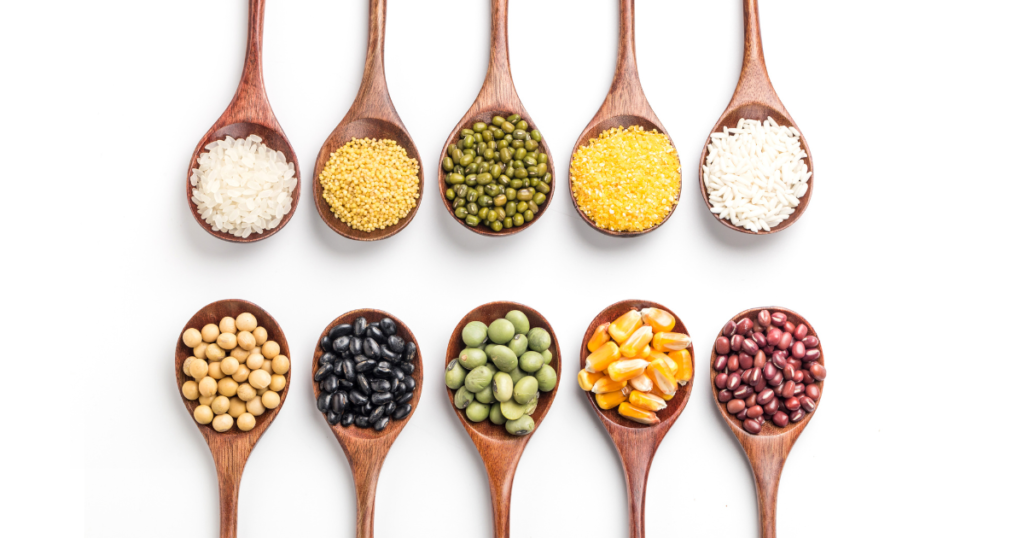During early recovery from an alcohol or drug addiction, you may experience frequent mood swings as your brain and body work to regulate themselves. Readjusting to life without substance use can be frustrating, stressful and sometimes uncomfortable, especially if you no longer have drugs or alcohol to help you cope with negative emotions or pain in your body. There are many things you can do to try to help elevate your mood during early recovery, but did you know that having proper nutrition can help?
Eating regularly scheduled and balanced meals is a great place to start, but we’ve taken it one step further and listed below three specific nutrients that are associated with mood and how you can incorporate them into your diet.
Related: Best Food Recommendations for Drug or Alcohol Detox
Three nutrients that can help improve your mood
1. B Vitamins
B vitamins help your body turn the food that you eat into energy. This process is known as metabolism, chemical reactions in the body’s cells that convert food into energy. With a steady amount of energy, you’re able to tackle another day in early recovery and stay motivated.
In addition, some B vitamins act as cofactors (aka partners) in the production of “feel good” hormones, or neurotransmitters, like dopamine and serotonin.
There are eight different B vitamins, but those specifically aiding in mood include:
- Thiamin
- Folate (folic acid)
- Vitamin B12
If you’re in recovery and looking for foods rich in B vitamins to help boost your mood, here’s a list with more specifics on which foods are the best sources of B vitamins.
- Whole grains, fortified cereals, pork, legumes, seeds and nuts are great sources of Thiamin.
- Note: While thiamin deficiency is rare for most healthy Americans, it can be common in those with alcohol dependence and can lead to a condition called Wernicke-Korsakoff Syndrome. If you or a loved one has a recent history of long-term alcohol use, check with your healthcare provider to see if they recommend further supplementation. Call 888-448-0302 to speak to a recovery specialist at Landmark Recovery.
- Dark-green leafy vegetables, avocado, orange juice, eggs, beans, nuts, fortified grains and cereals contain Folate.
- Salmon, beef, milk and yogurt are good sources of Vitamin B-12, which is found in animal products.
- Note: Vegans often need to take a vitamin B-12 supplement to avoid becoming deficient since they don’t consume animal products.

Related: How Substance Use Affects Your Appetite
2. Vitamin D
Vitamin D is another nutrient that helps produce serotonin (a feel-good hormone). While you can get vitamin D from natural sunlight exposure, you should also make sure to consume vitamin D in your diet, especially during seasons when sunlight is minimal, like fall and winter.
Related: Understanding Seasonal Depression
Foods high in vitamin D include:
- Salmon (and other fatty fish)
- Eggs
- Milk
- Yogurt
- Mushrooms
Some people have trouble getting enough vitamin D through their diet, in which case their doctor may prescribe a vitamin D supplement (Note: you should always check with your health care provider before starting any dietary supplements).
3. Magnesium
Magnesium is a mineral that’s essential for muscle and nerve function. Consuming adequate magnesium is known to help your body feel calmer during recovery, and also reduce anxiety and depression. Part of this is because magnesium helps regulate cortisol, your body’s stress hormone.
Magnesium can be found in the following foods:
- Dark chocolate
- Nuts
- Dark green leafy vegetables
- Bananas
- Avocados
- Legumes
Need help with mood swings?
If you or a loved one is struggling with frequent mood swings as a result of repeated drug and alcohol use, you might benefit from therapy with a licensed addiction counselor. Call 888-448-0302 for more information or to find treatment centers near you.

Choose Recovery Over Addiction
We're here 24/7 to help you get the care you need to live life on your terms, without drugs or alcohol. Talk to our recovery specialists today and learn about our integrated treatment programs.




